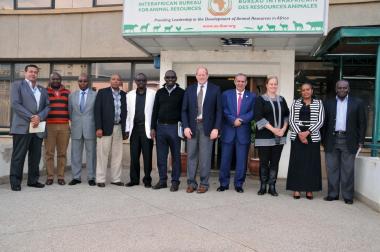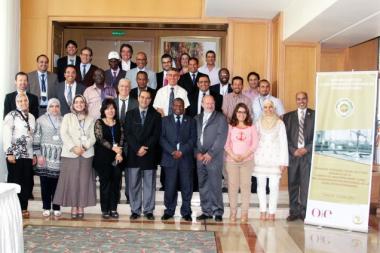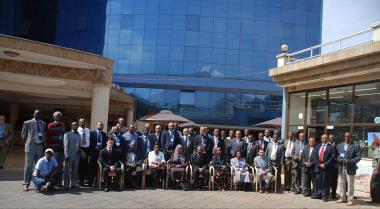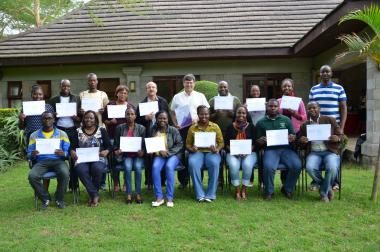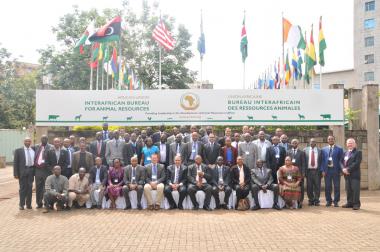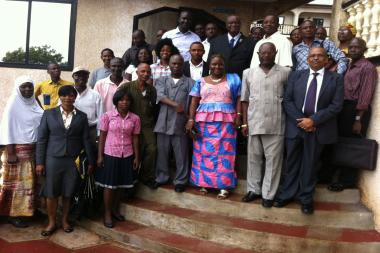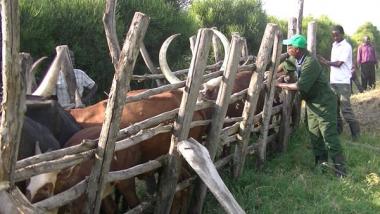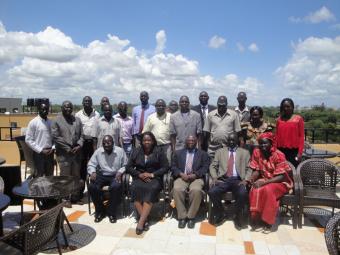
Preserving donkeys in Africa holds profound significance beyond their role as traditional work animals. These resilient creatures are integral to rural livelihoods, serving as vital assets in transportation, agriculture, and economic sustenance for communities across the continent. Their welfare is not merely a matter of compassion but a strategic imperative for maintaining socio-economic stability and ecological balance. In an online meeting held on July 2nd, 2024, stakeholders deliberated on advancing animal welfare across Africa, with a keen focus on the well-being of donkeys. Spearheaded by AU-IBAR, this initiative underscores a crucial stride towards safeguarding animal welfare and fostering sustainable practices continent-wide.
Historical Context and Milestones
Speaking during the opening of the meeting, Animal Health Unit Coordinator, Dr. Hiver Bousinni noted that the journey towards establishing a comprehensive strategy for animal welfare in Africa gained momentum through a series of key meetings and conferences and partnerships. Notably, the Pan African Conference on Animal Welfare in 2015 served as a foundational event, galvanizing efforts to address welfare standards and conservation practices across the continent.
Formulating the Roadmap: A Collaborative Effort
The roadmap emerged from extensive consultations and strategic engagements between AU-IBAR and diverse stakeholders, such as Brooke, Brooke Hospitals of Animals, and Donkey Sanctuary. These deliberations culminated in a unified animal welfare strategy aimed at preserving species diversity, mitigating trade-related threats, and enhancing overall welfare standards for animals in Africa.
Key Focus: Donkey Welfare and Conservation
Central to today's discussions was the plight of donkeys, whose welfare and existence face significant challenges due to the burgeoning demand for their skins. This demand, driven by traditional medicinal beliefs, poses a threat to donkey populations across Africa, compounded by factors such as low fertility rates and inadequate conservation policies.
Strategic Initiatives and Moratorium Implementation
Efforts have been directed towards implementing the moratorium aimed at halting detrimental practices, including the trade in endangered species like donkeys. Member states are urged to propose and adhere to specific timelines for these memoranda, emphasizing sustainable conservation practices and holistic animal welfare considerations.
Stakeholder Engagement and Advocacy Efforts
The meeting delegates noted that stakeholder engagement will continue to be instrumental in advancing these initiatives, with governmental support continuing to play a crucial role in elevating animal welfare issues to AU-wide consideration. It was noted that countries like Egypt have emerged as leaders in donkey healthcare and breeding practices, proposing benchmarks that could serve as models for other member states.
Looking Ahead: Implementation and Future Milestones
As the roadmap progresses, upcoming milestones include the 2nd Pan African Donkey Conference, slated in the 1st quarter of 2025 to consolidate efforts and drive actionable strategies forward. Communication and advocacy efforts remain priorities, particularly in supporting member states ahead of critical heads of state meetings and regional engagements.
Technical Working Group and Strategy Formulation & Implementation
A dedicated Technical Working Group (TWG), composing Regional Economic Communities, and key institutional advocates and experts in animal welfare and conservation will be composed and tasked with shaping and implementing the Pan African Donkey Strategy. Their collaborative efforts will aim to develop a detailed roadmap tailored to the unique challenges faced by African nations, focusing on capacity building, advocacy and sustainable development.
Conclusion
The roadmap for advancing animal welfare in Africa represents a collaborative commitment to preserving species, promoting health and welfare, and empowering communities across the continent. Through strategic planning, advocacy, and stakeholder engagement, AU-IBAR and its partners are paving the way towards a sustainable future where animal welfare is prioritized and protected. As efforts continue to evolve, the shared goal remains clear: ensuring a brighter future for both animals and humans alike in Africa.
This meeting underscores a pivotal moment in Africa's commitment to animal welfare, setting a precedent for inclusive and sustainable practices that resonate globally.
Read Excerpt on “Donkey Species Preservation in Africa: DONKEY IN AFRICA NOW AND IN THE FUTURE" from the Report of the Fifth Ordinary Session of the Specialized Technical Committee on Agriculture, Rural Development, Water, and Environment
Read on 1st Pan African Donkey Conference

